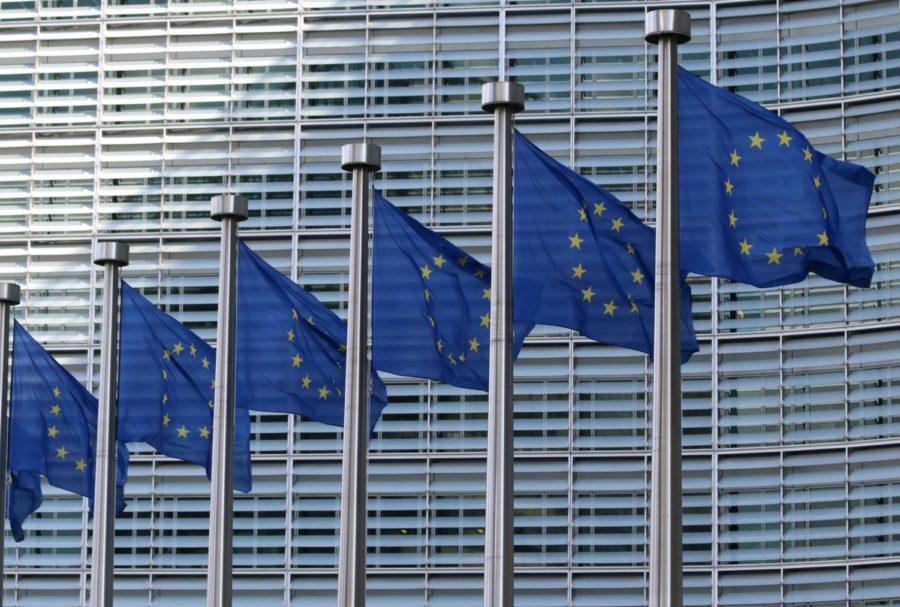Schmitt: EU Green Deal’s digressive approach to agriculture
Courtesy of Guillaume Périgois via Unsplash
Columnist Dawson Schmitt explains how the European Union’s Green Deal risks higher food prices and reduced trade.
January 17, 2022
The European Union has been deemed the “ambitious” champion of creating a healthy food system in a push to aid the environment and produce sustainable foods. The EU’s Green Deal and Farm to Fork strategies involve reducing pesticide risks, fertilizer usage and nutrient losses, and increasing organic farming acres to 25 percent of arable land.
European Commission Executive Vice-President for the European Green Deal Frans Timmermans urged that the EU must “restore the balance between human activity and nature,” saying the union must undergo a “great transition” through its strategies. However, the great transition Europe’s elites wish to embark on could inevitably lead to gouging consumers’ pocketbooks.
Policies under the EU Green Deal call for the union’s farming sector to reduce the use and risk of pesticides by 50 percent, fertilizers by at least 20 percent and antimicrobials by 50 percent. Despite enacting the measures that would make Europe’s food system more green, it risks higher input prices for production and skyrocketing consumer prices.
Research by the U.S. Department of Agriculture’s Economic Research Service suggests that food prices could rise as much as 53 percent under the Green Deal. If enacted in the U.S., Americans could pay 62 percent more at the grocery store.
Timmermans also said that the new policy would help increase the EU’s competitiveness and resilience despite importing more agricultural goods than it exports, though it benefited economically, with a trade surplus of nearly $50 billion. Yet, at the same time, ERS projects that the proposed policies could reduce trade due to reduced production and higher production costs that could threaten the EU’s competitiveness in the global market.
If similar policies were introduced globally, ERS estimates agricultural trade would decline by 4 percent. Even after Norman Borlaug’s work in the 1950s, ’60s and ’70s, with the development of wheat varieties that saved upward of one billion lives, food insecurity still exists. Higher commodity prices and lower incomes would hit impoverished countries the hardest, particularly African countries. If the world adopted EU-only policies, global food insecurity would increase by 22 million people.
The Institute for European Environmental Policy, which backs the Farm to Fork strategy, cites that food production accounts for 21-37 percent of the world’s greenhouse gas emissions. The institute adds it to a list of challenges that supposedly plagues the environment and food systems, making Farm to Fork necessary to create a more “sustainable” food system. The bloc deemed the share of emissions that feeds the world too much. Not to mistake that it’s bad for countries to work towards lowering their emissions, but working towards a system that lowers emissions while risking poverty does not appear as a noble goal.
By nature, sustainability includes profitability to ensure that systems, either on a micro or macro level, can continue for generations. Forcing producers to choose between a profitable and eco-friendly operation may not always prove to be the most productive, let alone sustainable. Ensuring that farms continue operating leads to subsidies often, which anti-big ag groups despise.
The constant fear-mongering about genetically modified crops and pesticides and fertilizers, and the push for an eco-friendly food system, may seem like a step in the right direction under the Green Deal as described by its supporters, but it appears as a step backward for food security.
ERS estimates that the average share of Americans’ disposable personal income spent on food fell from 17 percent to 9.9 percent between 1960 and 2000. Americans still benefit from advancements in the agricultural sector that allow consumers to spend money elsewhere or save for retirement, despite recent inflation due to the aftermath of the coronavirus pandemic.
If the Green Deal proposal to rewrite how the European Union produces and trades food succeeds, there is no question that stronger proposals will be introduced in the U.S. even if the results are as detrimental as what the USDA suggests.

















